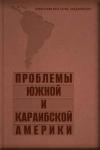Russian Politics: The Paradox of a Weak State
| Тема: | Внешняя политика России |
| Регион: | Постсоветское пространство |
| Год издания: | 2012 |
| Авторы / под ред. : | Marie Mendras |
Описание
Издательство: Columbia University Press
ISBN: 978-0231703901
What has become of the Russian state twenty years after the collapse of Communism? Why have the rulers and the ruled turned away from democratic institu¬tions and the rule of law? What explains the Putin regime's often uncooperative policies towards Europe and its difficult relations with the rest of the world? These are among the key issues discussed in this essential book on contemporary Russia by Marie Mendras, France's leading scholar on the subject.
Mendras provides an original and incisive analysis of Russia's political system since Gorbachev's perestroika. Contrary to conven¬tional thinking, she contends that today the Russian state is weak and ineffective. Vladimir Putin has dismantled and under¬mined most public institutions, and has consolidated a patronage system of rule. The Medvedev presidency was but one chapter in the story, as Putin's re-election exemplifies. Political and economic power remains concentrated in the hands of a few groups and individuals, and the elites remain loyal to the leadership in order to hold on to their positions and prosper. Those at the helm of the state are unaccountable to the society they govern.
Up until the economic crisis of 2008, ordinary Russians largely turned a blind eye to these authoritarian methods because living standards had markedly improved. The economic slowdown, rising corruption and unfair elections have put the leadership under pressure, and have caused unprecedented public protest.
Прошедший опрос
-
Какие угрозы для окружающей среды, на ваш взгляд, являются наиболее важными для России сегодня? Отметьте не более трех пунктов
Увеличение количества мусора 228 (66.67%) Вырубка лесов 214 (62.57%) Загрязнение воды 186 (54.39%) Загрязнение воздуха 153 (44.74%) Проблема захоронения ядерных отходов 106 (30.99%) Истощение полезных ископаемых 90 (26.32%) Глобальное потепление 83 (24.27%) Сокращение биоразнообразия 77 (22.51%) Звуковое загрязнение 25 (7.31%)

«Международные исследования в России»

Статистические данные по международной проблематике

Электронные журналы и библиотеки

Евгений Афанасьев, Чжоу Сяопэй

Александр Бобров, Ольга Лебедева

Виктор Хейфец

